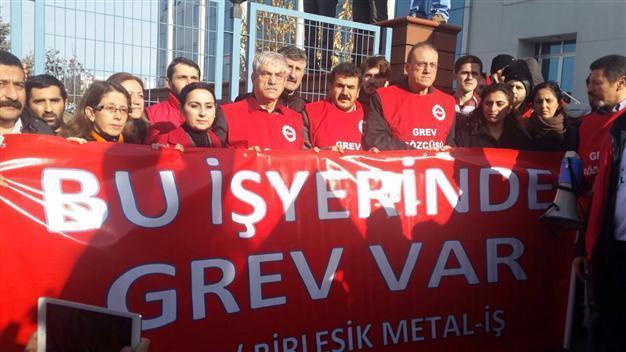Turkish government suspends workers’ strike in metal sector
ANKARA

DHA Photo
The government has suspended an ongoing strike in Turkey’s metal sector, citing national security.“The strike by Birleşik Metal-İş in the workplaces listed has been considered to be damaging national security and hence has been delayed for 60 days,” read a cabinet decision published in the Official Gazette on Jan. 30.
The cabinet was given the right to suspend and delay strikes with a law approved in the aftermath of the Sept. 12, 1980 military coup d’état.
Birleşik Metal-İş President Adnan Serdaroğlu criticized the government’s decision.
“Those who think that there will be peace in workplaces by taking away workers’ right to strike will see that they are wrong,” he told daily Hürriyet.
A group of metal workers began a strike on Jan. 29 across Turkey to protest poor wages in the sector and demand a better collective bargaining agreement with employers in the industry. Another group of metal workers were also planning to go on strike on Feb. 19, increasing the total number of striking workers to 15,000.
The strike began in 22 factories in the provinces of Osmaniye, Hatay, Mersin, Konya, Kocaeli, Bursa, İzmir, Bilecik and Istanbul. The total number of factories on strike was set to increase to 42 by Feb. 19 unless the workers and employers came to an agreement.
The decision to strike came after Birleşik Metal-İş, which is part of the Confederation of Progressive Trade Unions (DİSK), failed to reach an agreement with the Metal Industrialists’ Union (MESS) on wage increases and the length of collective bargaining periods.
The union has accused the MESS of consolidating a system of cheap labor through a policy of providing smaller wage increases to low-paid workers - who form close to 70 percent of the total number of workers in the sector - and higher raises to better-paid workers. At the same time, the union said MESS’s desire to sign a collective bargaining agreement of three years instead of two would also make cheap labor more permanent.
















